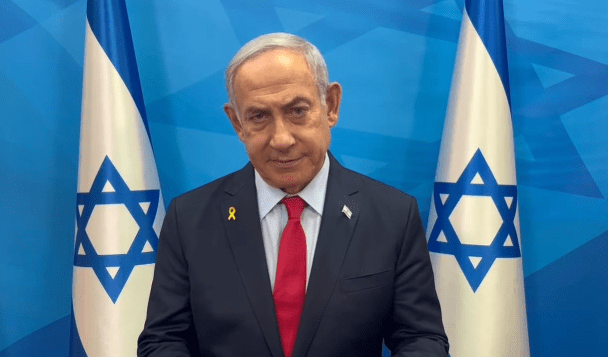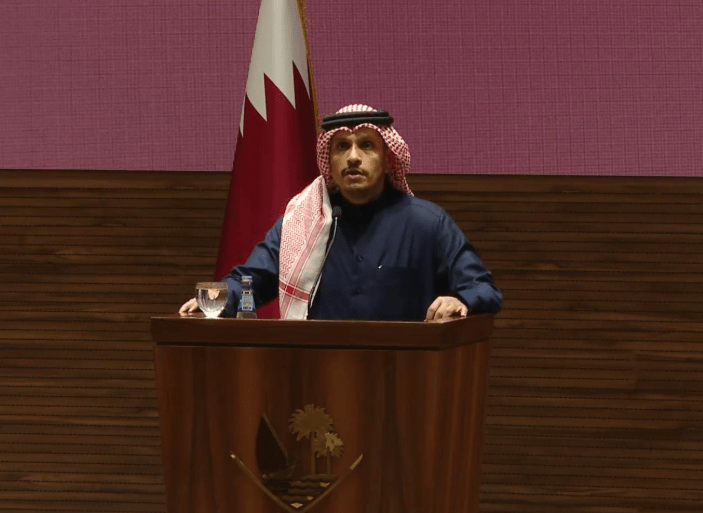Qatar has hinted at modest progress in attempts to broker a new ceasefire between Israel and Hamas. Yet, the bigger question – how to end the war – remains unanswered.
Speaking in Doha, Qatar’s Prime Minister Sheikh Mohammed bin Abdulrahman Al Thani said there had been “a bit of progress compared to other meetings, yet we need to find an answer for the ultimate question: how to end this war.”
His remarks followed discussions with David Barnea, head of Israel’s Mossad intelligence agency, who visited the Qatari capital on Thursday.
In a related development, Turkey’s Foreign Minister Hakan Fidan revealed that Hamas appears more willing to explore a long-term solution to the ongoing conflict.
After rejecting Israel’s latest ceasefire proposal just over a week ago, Hamas now seems prepared to strike a deal that would see all remaining hostages freed in exchange for a five-year cessation of hostilities.
Moreover, Hamas has floated the possibility of disarming – but only if Israel fully withdraws its military forces from Gaza. However, there’s little indication that Israel would entertain such a condition.
Since Israel imposed a total blockade on Gaza in early March, violence has surged. The Hamas-run Gaza health ministry reported that 2,151 Palestinians had been killed by Sunday morning, including 51 within the previous 24 hours.
The Israeli military also confirmed that an Israeli soldier and a police officer had died during clashes on Friday.
Meanwhile, the humanitarian crisis deepens. The UN World Food Programme recently warned that its food supplies in Gaza have been exhausted. Israel maintains it is complying with international obligations, denying accusations of aid shortages.
Sheikh Mohammed, however, accused Israel of pursuing a “starvation” policy against the Palestinian population.
Despite the recent dialogue, deep divisions remain. Last week, Hamas dismissed an Israeli proposal offering a 45-day ceasefire in return for the group’s total disarmament and the release of ten of the 59 remaining hostages.
Sheikh Mohammed acknowledged the efforts underway, stating, “We are trying to find a breakthrough,” but he pointed out that Israel and Hamas still hold vastly different views on what a ceasefire should entail.
“When you don’t have a common objective, a common goal, between the parties, I believe the opportunities [to end the war] become very thin,” he said.
Negotiations are also grappling with the future governance of Gaza. According to a Palestinian official speaking to the BBC, Hamas is ready to transfer control of Gaza to any Palestinian entity agreed upon “at the national and regional level.” This could involve the West Bank-based Palestinian Authority (PA) or a newly established administrative body.
The United States has been pushing for a reformed PA to assume governance after the war. However, Israeli Prime Minister Benjamin Netanyahu has outright rejected any role for the PA, reiterating his opposition to the formation of a Palestinian state.

In a move that could reshape Palestinian leadership, PA President Mahmoud Abbas, 89, appointed close confidant Hussein al-Sheikh as his deputy within the Palestine Liberation Organisation (PLO) over the weekend. Abbas has long resisted such internal reforms, making the appointment notable.
Despite repeated assertions that it stands ready to govern Gaza post-conflict, the PA faces criticism from Palestinians for its perceived lack of action and muted voice during the crisis.
During a charged address in Ramallah last Wednesday, Abbas condemned Hamas, branding its members “sons of dogs” and demanding that the group release hostages, disarm, and relinquish control of Gaza.
Rising Death Toll and Growing Humanitarian Crisis
On Sunday, Gaza’s health ministry updated the war’s death toll to at least 52,243 people. This new figure accounts for hundreds previously reported missing, whose deaths have now been confirmed.
The health ministry also refuted claims that it had manipulated fatality statistics, after questions were raised over discrepancies in figures reported between late 2024 and early 2025.
The devastation continues as Israel’s offensive, launched in response to Hamas’ 7 October 2023 cross-border attacks, has left much of Gaza in ruins.
While slight progress in ceasefire negotiations offers a glimmer of hope, significant hurdles remain. Diverging visions between Hamas and Israel, compounded by disputes over Gaza’s future governance, mean that a comprehensive peace deal is still out of reach.
Until both sides align on fundamental goals, the people of Gaza and Israel face an uncertain and perilous road ahead.






